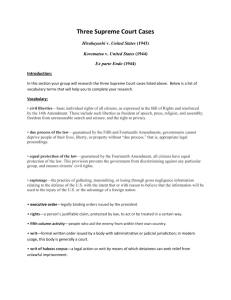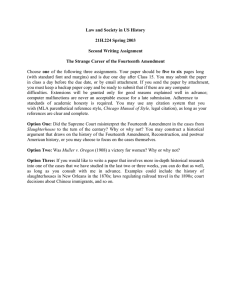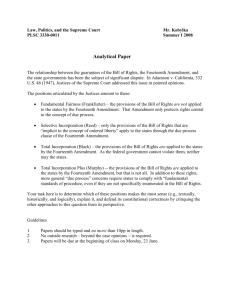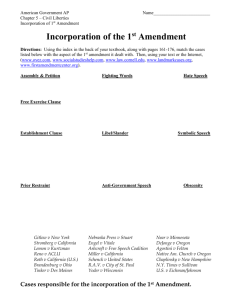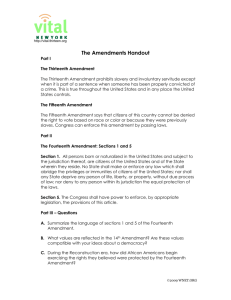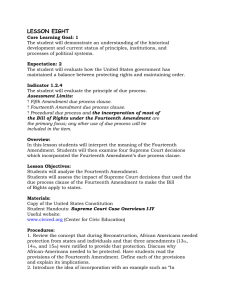Due Process in the 5th and 14th Amendments notes
advertisement
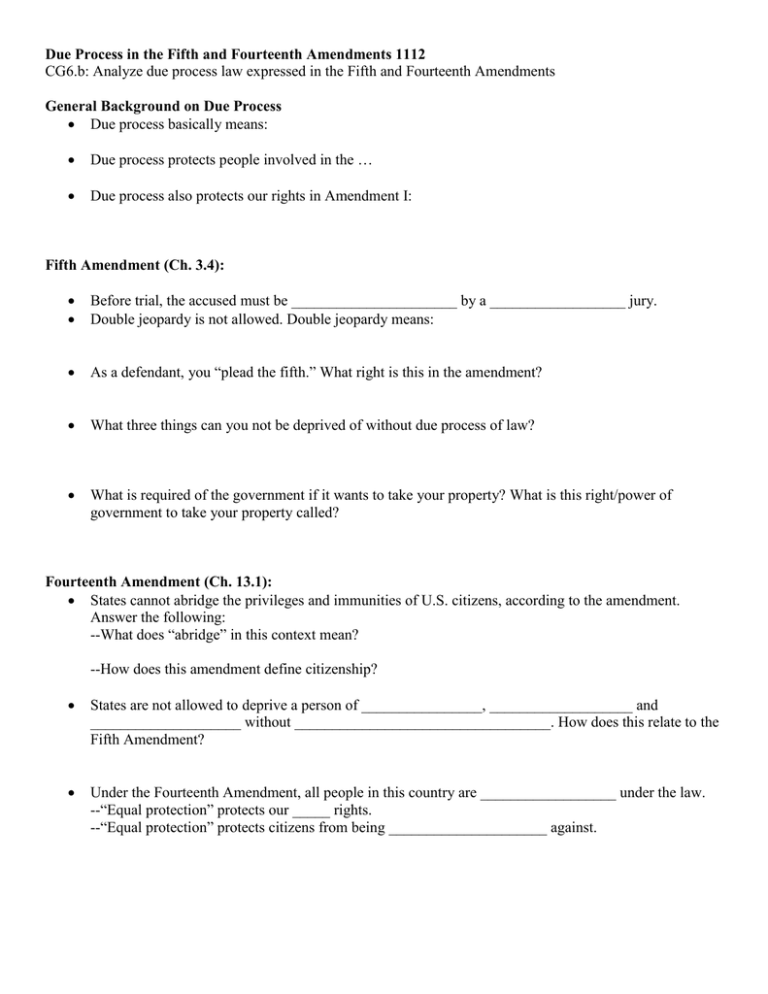
Due Process in the Fifth and Fourteenth Amendments 1112 CG6.b: Analyze due process law expressed in the Fifth and Fourteenth Amendments General Background on Due Process Due process basically means: Due process protects people involved in the … Due process also protects our rights in Amendment I: Fifth Amendment (Ch. 3.4): Before trial, the accused must be ______________________ by a __________________ jury. Double jeopardy is not allowed. Double jeopardy means: As a defendant, you “plead the fifth.” What right is this in the amendment? What three things can you not be deprived of without due process of law? What is required of the government if it wants to take your property? What is this right/power of government to take your property called? Fourteenth Amendment (Ch. 13.1): States cannot abridge the privileges and immunities of U.S. citizens, according to the amendment. Answer the following: --What does “abridge” in this context mean? --How does this amendment define citizenship? States are not allowed to deprive a person of ________________, ___________________ and ____________________ without __________________________________. How does this relate to the Fifth Amendment? Under the Fourteenth Amendment, all people in this country are __________________ under the law. --“Equal protection” protects our _____ rights. --“Equal protection” protects citizens from being _____________________ against. Selective Incorporation, Ch. 13.1 (CG6.c) Answer on back of this sheet. What does “incorporation” mean? What is unique about how the Supreme Court viewed the Bill of Rights in the 19th century? The Supreme Court used what part of the Fourteenth Amendment to begin the process of selective incorporation? Which right was the first one to be incorporated by the Supreme Court on the state and local level? What is the name of the case? For the average citizen, why is incorporation important? Civil Liberties and Civil Rights --Civil liberties: --Civil rights:
